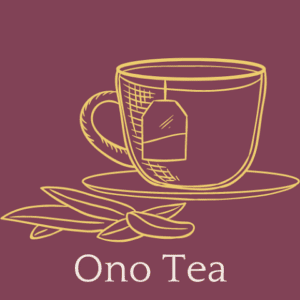As the seasons shift, bringing vibrant blooms or crisp autumn leaves, many of us brace for the less pleasant side effects: seasonal allergies. Sneezing, itchy eyes, congestion, and a runny nose can turn a beautiful day into a battle against discomfort. While over-the-counter remedies have their place, nature offers a gentler, time-tested alternative—herbal teas.
These soothing brews, steeped in tradition and backed by emerging science, can help ease allergy symptoms while providing a comforting ritual to enjoy throughout the day. In this article, we’ll explore the best herbal teas to combat seasonal allergies, delving into their properties, benefits, and how to incorporate them into your routine.
Understanding Seasonal Allergies
Before diving into the teas, let’s briefly unpack what seasonal allergies are. Medically known as allergic rhinitis, this condition occurs when your immune system overreacts to airborne particles like pollen, mold spores, or dust. Spring brings tree pollen, summer unleashes grass pollen, and fall introduces ragweed and mold—each season with its own allergens. Symptoms range from mild irritation to debilitating sinus pressure, often prompting sufferers to seek relief.
Herbal teas work in various ways to alleviate these symptoms. Some contain anti-inflammatory compounds to reduce swelling in nasal passages, others boast antihistamine-like effects to calm the immune response, and many offer hydration to thin mucus and soothe irritated throats. Plus, the act of sipping a warm cup can provide psychological comfort—a small but meaningful reprieve. Below, we’ll highlight the standout herbal teas that deserve a spot in your allergy-fighting arsenal.
1. Nettle Tea: The Allergy-Fighting Powerhouse
Nettle (Urtica dioica), often dismissed as a prickly weed, is a superstar in the world of herbal remedies. Its leaves are packed with vitamins (like C and A), minerals, and bioactive compounds that make it a natural ally against allergies.
Why It Works
Nettle is celebrated for its antihistamine and anti-inflammatory properties. Histamine is the chemical your body releases during an allergic reaction, triggering symptoms like itching and sneezing. Studies suggest that nettle may inhibit histamine production or block its receptors, offering relief without the drowsiness of pharmaceutical antihistamines. Additionally, its anti-inflammatory effects can reduce swelling in the sinuses, making breathing easier.
How to Enjoy It
Nettle tea has a grassy, earthy flavor that some find strong on its own. To soften it, blend it with a touch of honey or pair it with peppermint (another allergy-friendly herb we’ll cover later). Steep 1–2 teaspoons of dried nettle leaves in hot water for 10 minutes, strain, and sip 1–2 cups daily during allergy season.
Pro Tip
Look for organic nettle to avoid pesticide residues, and if foraging, wear gloves—those tiny stinging hairs are no joke until they’re dried or brewed!
2. Peppermint Tea: A Breath of Fresh Air
Peppermint (Mentha piperita) isn’t just a candy cane flavor—it’s a potent herbal tea with a cooling sensation that can open up congested airways.
Why It Works
The menthol in peppermint acts as a natural decongestant, helping to break up mucus and ease sinus pressure. Its anti-inflammatory properties also soothe irritated tissues, while its antimicrobial effects may ward off secondary infections that sometimes piggyback on allergy symptoms. For those with itchy throats or coughs, peppermint’s mild numbing effect offers instant relief.
How to Enjoy It
Steep a teaspoon of dried peppermint leaves (or a tea bag) in boiling water for 5–10 minutes. The aroma alone can start clearing your head. It’s delicious hot or iced, and a dash of lemon can enhance its brightness. Aim for 1–3 cups daily when symptoms flare.
Pro Tip
If pollen’s got your eyes watering, place cooled, used peppermint tea bags over them for a refreshing, anti-inflammatory compress.
3. Chamomile Tea: The Calming Antihistamine
Chamomile (Matricaria chamomilla or Chamaemelum nobile) is a delicate flower with a reputation for relaxation, but it’s also a surprisingly effective allergy remedy.
Why It Works
Chamomile contains flavonoids like quercetin, which have antihistamine and anti-inflammatory properties. These compounds may help stabilize mast cells (the ones that release histamine), reducing the severity of allergic reactions. Its gentle sedative effect also calms the nervous system, which can feel frazzled during an allergy attack.
How to Enjoy It
Brew 1–2 teaspoons of dried chamomile flowers in hot water for 5–10 minutes. Its apple-like flavor pairs beautifully with honey, which itself has mild allergy-soothing properties (especially local raw honey). Drink it in the evening to unwind and ease symptoms overnight.
Caution
Chamomile is related to ragweed, so if you’re allergic to that plant family (Asteraceae), test a small amount first to avoid a reaction.
4. Rooibos Tea: The Antioxidant Boost
Rooibos (Aspalathus linearis), a red-hued herb from South Africa, is a caffeine-free option that’s gaining fans for its allergy-relieving potential.
Why It Works
Rich in antioxidants like aspalathin and quercetin, rooibos combats oxidative stress—a factor that can worsen inflammation during allergic reactions. Quercetin, in particular, is a natural antihistamine, potentially reducing sneezing and itching. Rooibos also supports overall immune health, which can help your body cope with allergen exposure.
How to Enjoy It
Steep a rooibos tea bag or 1–2 teaspoons of loose leaves in hot water for 5–7 minutes. Its naturally sweet, nutty taste needs no embellishment, though a slice of orange can add a citrusy twist. Enjoy 1–3 cups daily for consistent benefits.
Pro Tip
Rooibos is versatile—try it as a base for smoothies or iced tea on warmer days when allergies strike.
5. Ginger Tea: The Spicy Inflammation Fighter
Ginger (Zingiber officinale) brings a zesty kick to the table, along with powerful anti-inflammatory and immune-boosting properties.
Why It Works
Ginger’s active compounds, like gingerol and shogaol, reduce inflammation in the respiratory tract, easing congestion and sinus pain. It also stimulates circulation, which can help flush out allergens and toxins. For allergy sufferers with sore throats or coughs, ginger’s warming effect is a balm.
How to Enjoy It
Grate a 1-inch piece of fresh ginger into a cup of hot water, steep for 10 minutes, and strain. Add honey and lemon for a classic combo that enhances its decongestant power. Drink 1–2 cups daily, especially when symptoms peak.
Pro Tip
Pair ginger with turmeric (another anti-inflammatory hero) for a double dose of relief—just add a pinch of black pepper to boost turmeric’s bioavailability.
6. Elderflower Tea: The Sinus Soother
Elderflower (Sambucus nigra), derived from the elder tree’s blossoms, has a long history in European herbal medicine for respiratory ailments.
Why It Works
Elderflower is a natural expectorant, helping to clear mucus from the sinuses and lungs. It also has mild antihistamine and anti-inflammatory effects, making it ideal for runny noses and watery eyes. Some herbalists credit its bioflavonoids with strengthening mucous membranes against allergens.
How to Enjoy It
Steep 1–2 teaspoons of dried elderflowers in hot water for 10 minutes. Its floral, slightly sweet taste is lovely solo or with a hint of honey. Sip 1–2 cups daily during allergy season.
Caution
Use only the flowers—elderberries and other parts of the plant can be toxic if not prepared correctly.
7. Green Tea: The Subtle Allergy Shield
While not strictly herbal, green tea (Camellia sinensis) earns a spot for its unique allergy-fighting edge.
Why It Works
Green tea contains epigallocatechin gallate (EGCG), a potent antioxidant with anti-inflammatory and antihistamine-like effects. Research suggests EGCG may inhibit histamine release and reduce allergic inflammation. Its mild caffeine content can also perk you up when allergies leave you foggy.
How to Enjoy It
Steep a green tea bag or 1 teaspoon of loose leaves in water just below boiling (about 175°F/80°C) for 1–3 minutes to avoid bitterness. Add a splash of citrus for flavor and extra vitamin C. Limit yourself to 1–2 cups daily to avoid caffeine jitters.
Pro Tip
Opt for matcha (powdered green tea) for a concentrated dose of EGCG—just whisk it into hot water.
Combining Teas for Maximum Relief
Why settle for one when you can blend? Combining these teas can amplify their effects. Try a nettle-peppermint mix for decongestant power with antihistamine benefits, or a chamomile-elderflower duo for soothing sinuses and calming the mind. Experiment with ratios to suit your taste, and always start with small amounts to ensure your body tolerates the blend.
Lifestyle Tips to Pair with Your Teas
Herbal teas shine brightest when supported by smart habits. Rinse your sinuses with a saline spray to remove allergens, keep windows closed during high pollen days, and shower after outdoor time to wash off irritants. A diet rich in anti-inflammatory foods—like berries, leafy greens, and omega-3s—can also bolster your tea’s effects.
Final Thoughts
Seasonal allergies don’t have to dictate your life. With a steaming mug of nettle, peppermint, chamomile, rooibos, ginger, elderflower, or green tea, you can find natural relief that’s as enjoyable as it is effective. These herbal allies offer a holistic approach, addressing symptoms while inviting moments of calm amid the storm of sneezes. Stock your pantry, brew a pot, and let nature’s finest teas guide you through allergy season with ease.
For more wellness insights and tea-inspired recipes, visit onotea.com—your hub for all things steeped in goodness.

